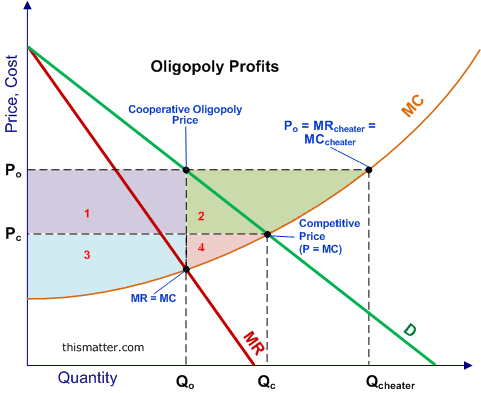From that
Konrad Graf article:
I was thinking more about this idea of the miners as a "cartel." So it does seem as though Bitcoin's nature makes it at least relatively easy for miners to impose an "industrywide output ceiling" on on-chain transaction-inclusion services (i.e., blockspace). Unlike the situation with a traditional cartel, you can impose this ceiling without the willing participation of all or substantially all firms in the market (instead you just need a simple majority of the hashpower), and, because of the public nature of the blockchain, you don't have to worry about secret cheating.
But even if we think that's what's going on, i.e., that the miners have formed a cartel, they don't appear to be acting like one -- or at least, not a very bright one. You don't form a cartel and then just
arbitrarily restrict industry output. I mean, OPEC doesn't go, "hey guys, let's only sell one barrel of oil this year. If we do that, that one barrel will fetch a fortune!" You restrict quantity to the point that maximizes profits (i.e., the point at which marginal cost equals marginal revenue).
Somehow I doubt that 1-MB is the magic number that allows miners to enjoy maximum monopoly profits from transaction fees. In fact, most of us seem to think that the real motivation behind the ceiling is the desire to maximize the profits associated with
products that will compete with the miners' products (i.e.,
off-chain transaction services). So the current situation seems kind of like OPEC having been convinced to cap their oil production at an absurdly-low and profit-sacrificing level ... by a company that sells electric cars.




